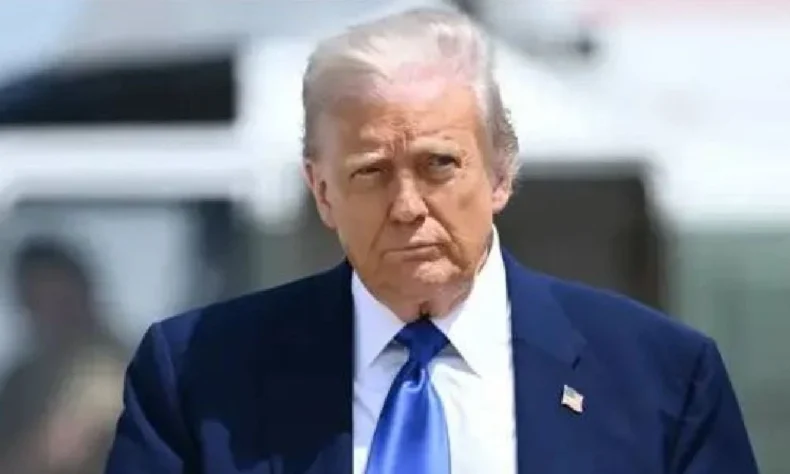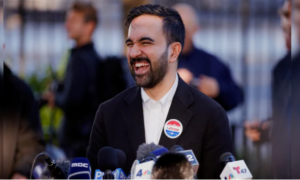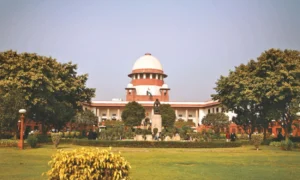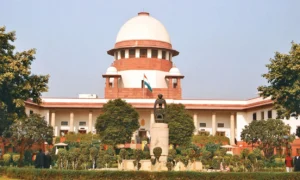
The Donald Trump administration has turned the politics of fear into both a weapon and a spectacle— thrilling his MAGA base while alarming constitutional scholars and civic leaders. The recent deployment of unarmed National Guard members to “support” heavily armed US Immigration and Customs Enforcement (ICE) agents underscores a deeper agenda: the unchecked expansion of presidential authority, even at the expense of law and precedent.
President Trump’s repeated claims of “radical left-wing anarchists” destroying cities bear little resemblance to reality. In Portland, Oregon—which he described as being “in flames”—a police sergeant’s log for the same day recorded only eight protesters, none of whom were even hostile. Yet, Trump’s narrative of chaos fuels his justification for federal intervention.
The president’s fixation on “law and order” has led to escalating confrontations with governors and mayors. His tirades against Illinois Governor JB Pritzker and Chicago Mayor Brandon Johnson—suggesting they “should be in jail for failing to protect ICE officers”—illustrate his contempt for local authority. Even US Senator Richard Blumenthal was publicly scolded for challenging Attorney General Pam Bondi’s evasive testimony.
Federal judges have increasingly acted as constitutional fire brigades, extinguishing attempts to federalize local forces. In Oregon, US District Judge Karin J Immergut—a Trump appointee—halted the deployment of National Guard troops, reminding the administration that “this is a nation of constitutional law, not martial law”. Her ruling provoked presidential outrage, highlighting Trump’s expectation of loyalty over legality.
California Governor Gavin Newsom and Illinois Governor JB Pritzker prevailed in taking the administration to court after Trump attempted to send National Guard troops into their states without consent. “Donald Trump is using our service members as political props and pawns,” said Pritzker, “in his illegal effort to militarize our nation’s cities”.
Two federal judges agreed to halt federal actions recently. District Judge April M Perry said: “I have found no credible evidence that there is a danger of rebellion in the state of Illinois.” In response to a lawsuit that journalists are being targeted physically, a judge issued a two-week temporary restraining order prohibiting federal agents from “[d]ispersing, arresting, threatening to arrest, threatening or using physical force against any person whom they know or reasonably should know is a Journalist, unless Defendants have probable cause to believe that the individual has committed a crime.” Federal agents in Chicago have been targeting journalists.
An opinion essay by Thomas B Edsall in The New York Times argued that “violence of any kind plays into Trump’s hand,” providing the pretext for further clampdowns. Quoting political scientists, Edsall noted that Trump’s appointees are chosen for loyalty, not competence—a pattern that has provoked quiet resistance across the country.
Meanwhile, lawsuits have piled up. Journalists and civil rights groups in Illinois have accused federal agents of using “indiscriminate and violent force”—including tear gas, rubber bullets and flash grenades—against peaceful protesters. “Never in modern times has the federal government undermined bedrock constitutional protections on this scale,” reads the complaint.
At the heart of Trump’s justification lies Title 10 of federal law, which allows the president to use military forces in cases of rebellion or when civil authorities fail to enforce the law. White House advisor Stephen Miller recently described this as granting the president “plenary authority”—an assertion that alarmed legal experts.
Historian Heather Cox Richardson points out that this concept of absolute power echoes the ideas of Carl Schmitt, the German political theorist who joined the Nazis. “It’s a chilling parallel,” she warns, “as Trump and Miller use emergency powers to justify unprecedented federal control”.
Trump has declared at least eight national emergencies in nine months—each one widening his latitude for unilateral action. As the federal government remains partially shut down amid a budget stand-off, the conflict over who controls spending has become another front in the battle for American democracy. Congress, historically the steward of the nation’s purse strings, is fighting to preserve that constitutional role.
Political researchers estimate that about eight percent of American voters “don’t know what fascism is—only that it’s bad”. But as Trump’s war on dissent, the press, and state authority deepens, more Americans are beginning to ask whether the threat is no longer theoretical, but already here.
—The writer has worked in senior positions at The Washington Post, NBC, ABC and CNN and also consults for several Indian channels
📰 Crime Today News is proudly sponsored by DRYFRUIT & CO – A Brand by eFabby Global LLC
Design & Developed by Yes Mom Hosting





